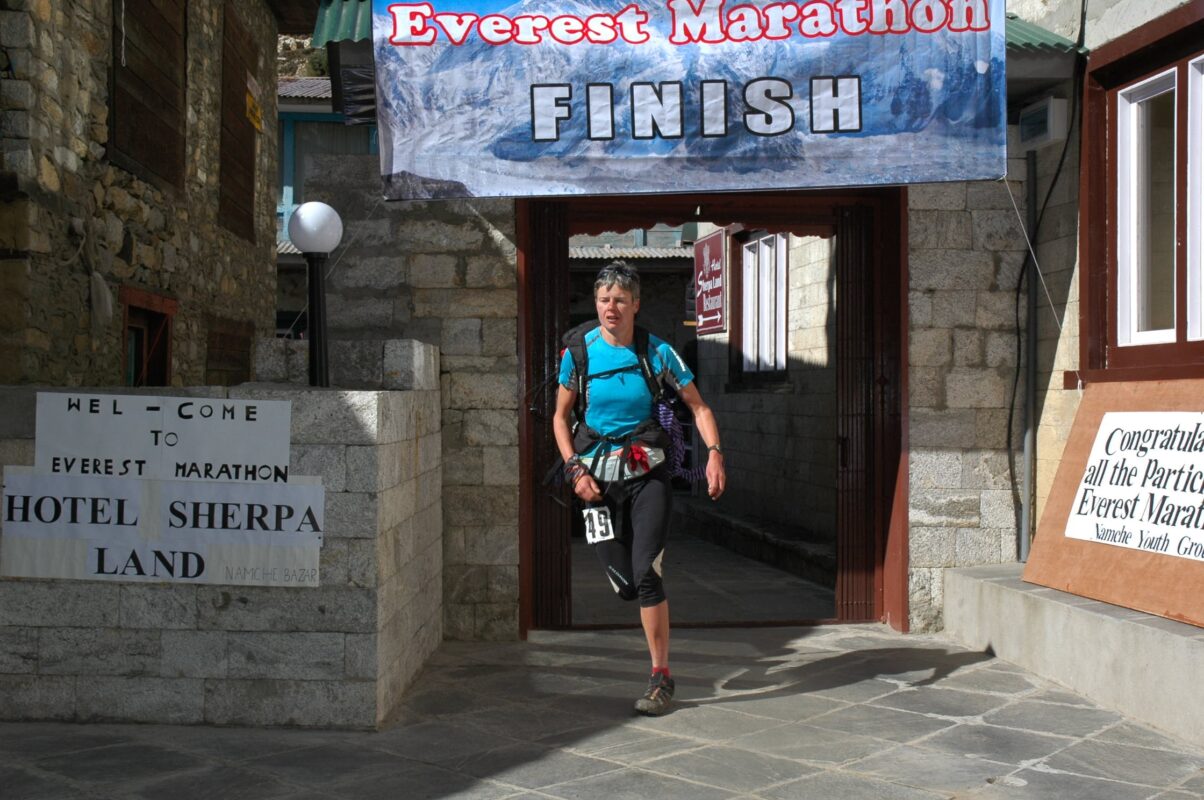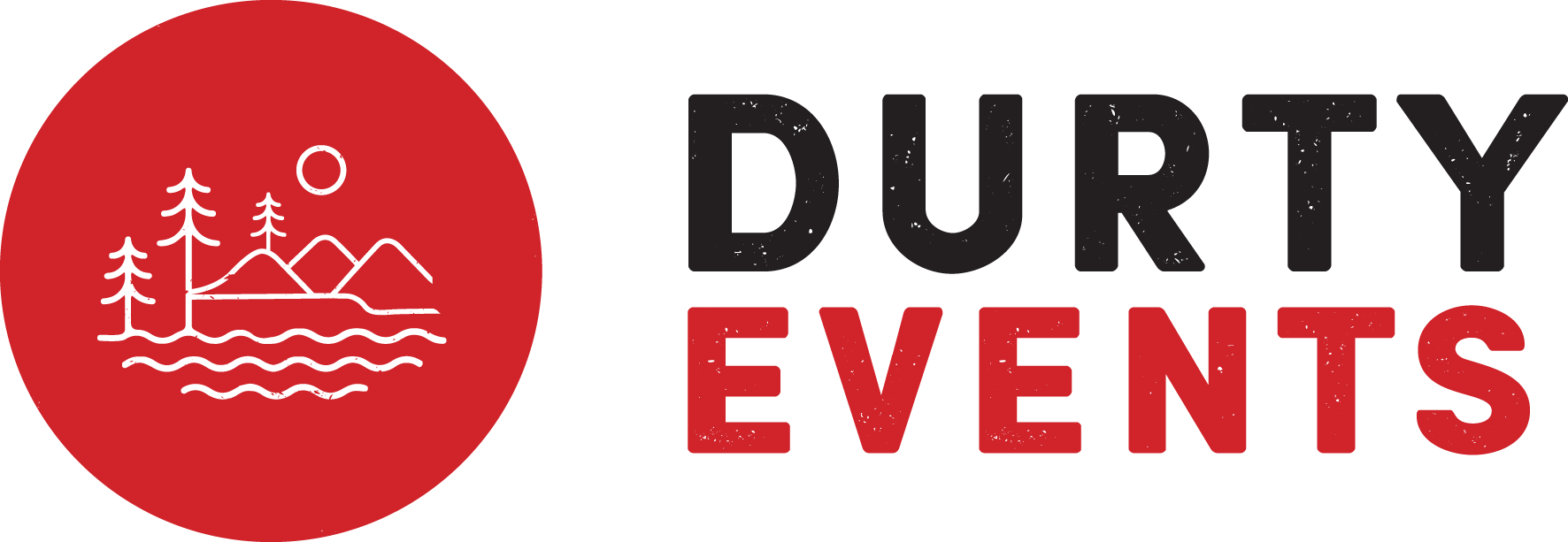


Learn to listen to your body, most of us pick up the same injuries again and again because our biomechanics stress the same bits. We have to change our running style to stop stressing those bits. “
Angela Mudge (World Champion Hill runner)
I’ve been hill running since 1991, competing internationally in mountain and trail running for Scotland and GB. Achievements:
-
2000 – World Mountain Running Champion, 2003 – Runner up
-
Three times 2nd in European Mountain Running Championships
-
2009 – 2nd in IAU Ultra Trail Running Championships
-
2006 and 2007 – World Sky Running Champion
-
Five times British Fell Running Champion
Angela, what’s your current involvement in Athletics?
Currently I’m Scottish Athletics National Lead for Hill and Mountain Running. I support athletes, coaches, and race organisers with any issues surrounding hill running. I organise trails for GB teams, inter-counties, and home internationals when it’s Scotland’s turn to host.
I’m also Off-Track Events Administrator for British Athletics. I support MRAG (mountain advisory group) and URAG (Ultra advisory group) with the administration of mountain, trail and ultra events helping co-ordinate logistics for international teams and working with them on domestic issues.

Why has Lakes in a Day been selected as the British Trail Running Championship – Middle Distance Event?
In 2022 the World Mountain Running Championships and IAU Trail Running Championships amalgamated to become one event the World Mountain and Trail Running Championships and the European Mountain Running Championships rebranded to become the European Off-Road Championships to include a 40 – 50km trail race.
With the new World championship format URAG and the TRA agreed that the middle distance event should be used to develop trail running and use courses that would replicate those found internationally – mountainous and approx. 80km. Having an 80km British championship over a mountainous course in the Lakes ticked those boxes and will hopefully give runners experience of the type of races they will find internationally.
Lakes in a Day is also late in the domestic calendar so we hope some of the top UK performers can finish their season in the Lakes and help raise the standard of domestic championships.
Are you considering taking part yourself?
I am considering it. I just have to see if my body doesn’t fall to pieces in the coming months!
What is it, that you love most about running in the hills?
The variety, the quiet, and being self-sufficient. You never know what a hill run will throw at you – bog, gales, cloud inversions, eagle sightings and much more. I love the solitude of the hill and being in wild remote places away from the masses.
How did you prepare for your races? Did you follow a specific training plan or routine?
I trained like most endurance runners. Each week I’d include two to three speed sessions and a long run, building miles over the Winter and concentrating on speed in the Summer during the racing season. Each Winter I’d plan the coming racing year and decide which races I wanted to peak for and which races I would use to reach my goals. As a younger athlete I loved racing so ran many races as ‘training sessions’ to help me obtain my goal. I would taper for The ‘A’ races, whereas others I didn’t drop my training. I never had a specific routine before races. I felt if I did and something went wrong, I wouldn’t toe the start line in the right mental place.
There’s a lot of coverage at the moment, about Slow Running. Is that something you’d advocate?
There’s a place for slow and fast running. My quality sessions would be fast (for me) and the majority of sessions outwith quality sessions were slow. These sessions were focused on recovery to enable me to train (or race hard) in a day or two’s time. My long runs were all completed at a slow pace, where I could chat and in theory run all day. Some long runs were faster but that was specific training for the ‘A Race’ on the horizon.
How did you go about trying to avoid Injury – particularly for ageing runners, middle-aged and upwards?
Learn to listen to your body, most of us pick up the same injuries again and again because our biomechanics stress the same bits. We have to change our running style to stop stressing those bits. I learnt certain niggles meant I needed a new pair of trainers, others meant I needed a few days off. Unfortunately, my biomechanics are far from ideal so I picked up a few serious injuries due to congenital defects. With age, stretching and massage definitely help in keeping injuries away, compression socks help with tight calves and I use kinesio tape on historic injuries when they are starting to tighten up and plenty of ice.

What are your top tips for someone considering running mountain-ultras if they’ve never done it before?
- Strengthen your quads, it’s the descending that will take the most out of your legs.
- Run some decent length climbs and descents in training to let your muscles adapt to the continuous ascents and descents.
- Practice eating on the move, unlike road marathons you will need to eat during the event, find food that you can eat on the move and agrees with your stomach
- Try out your gear in training, running vests can rub so make sure it’s comfortable before heading out
- Study the course before hand so you know the race profile in your head. It also helps to recce sections so you know what type of terrain you will be racing across
- Buy some shoes with decent grips, which you feel confident in over tricky terrain
How much emphasis do you place on nutrition?
Nutrition is very important in ultra events. It doesn’t matter how fast you can run if you get your nutrition wrong. You don’t want to run out of energy midway and you also need food which won’t upset your stomach and make you feel sick. I never eat gels on the run, I use normal food you can buy in any supermarket
Is there any kit or brand that you’re particularly fond of or would recommend? Especially with LIAD in mind.
I’ve never used poles but they are a definite help on steep climbs if you know how to use them properly. As a hill runner we aren’t allowed to use them in Scottish races. To be honest, I’m the last person to ask about kit. I like my Pete Bland bum bag and the most basic gear I can find – I still use a map and compass and a piece of string to measure how far I’ve run!
What’s your single killer piece of advice for any runner?
Enjoy it!
ENTER LAKES IN A DAY 2023
